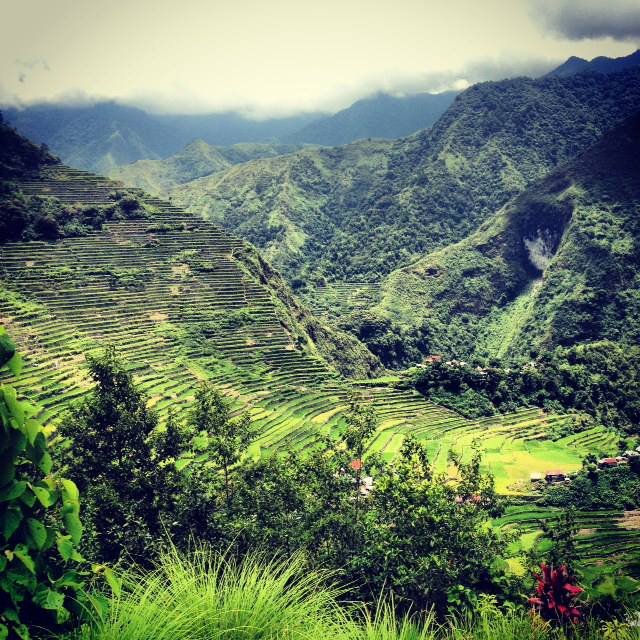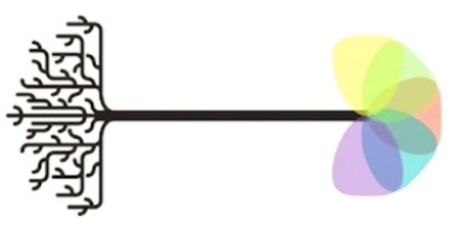Hope Lands
/I recently visited Nomad’s Refuge which is located just outside of Cebu Philippines. Below is a video that shows how gorgeous the site is. I had a breakfast burrito there and the food is as tasty as the view. The owner accompanied me for breakfast, and we talked about his and his spouse’s vision and why they opened the restaurant. If you pause the video at exactly thirty-eight seconds, you will see a wall that is holding back the mountain. All along the roadside on the way up the mountain, these barriers have been built to hold back landslides.
Businesspersons from the nearby city are buying plots of land, removing trees, and building huge mansions with a view. Without the trees’ roots, the water can’t be managed, and it results in landslides.
In addition to the challenges of water management and landslides, there are challenging farming practices. Sitting at the coffee shop many cleared farming plots can be seen across the hills. You can find a picture in this article: Nomad’s Refuge. Newest Chic Place in Transcentral Highway The lands are often cleared with chemicals and crops treated with pesticide.
The owners of Nomad have a social vision. They are a husband and wife, a former oil worker and a lifelong social worker. He is from a western country, and she is Filipina. They both have lived outside of the area for many years but have recruited workers from the local community both to build as well as staff the restaurant. They’ve planted trees. They urge farmers not to use chemicals. They’ve been offered large sums of money for the extra land they have in the area but won’t sell it without assurances trees won’t be cut down.
They struggle to mobilize the community for a larger impact. Their approach to employees provides social capital in the community, but those not connected to the families of those they employ (including the farmers they talk to) don’t share the same vision. The owners of Nomad continue to urge other property owners not to sell their properties, but usually without positive results. Farmers hate to see the loss of crops to pests and are unsure that organic prices can make up the difference. I sensed both hope and discouragement in our conversation.
I found myself struggling with the theoretical concepts of community development which exalt ideas that arise from the community. What happens when a community is imploding on itself? I also ask how often hope leads dreamers off a cliff. The owners of Nomad have a vision, but whether the business will be sustainable and have long-term community ownership, remains to be seen. The wealthy landowners keep building big homes motivated by the need for a respite from the city. This demand increased during covid when strict lockdowns forced residents in cities to stay inside for months at a time. The farmers, hoping to survive from day to day, keep using chemicals. This is their community. It is a disjointed framework of individuals with ill aligned purposes in the same geographic space. When I think of hope landing, I picture a time when hope is realized, and equilibrium is established.
Sitting at Nomad I looked out on the landslides and sang Stevie under my breath:
I took my love, I took it down I climbed a mountain and I turned around And I saw my reflection in the snow-covered hills. Til the landslide brought me down
My mind began to wander off. Didn’t the world celebrate Muhammad Yunus with a Nobel Peace Prize and call him the banker of the poor for creating the micro-credit movement? Many believed micro-credit would transform the world. But then farmers in rural India began committing suicide because they were overindebted https://www.journalismfund.eu/supported-projects/suicide-epidemic-profitable-indian-microfinance-market
Yes, I confirmed in my spirit that outside interventions, no matter how promising, could be deceptive.
Then I remembered an organization working in the Philippines to address online sexual exploitation. Often it was the parents of a child who would sell them to a foreigner through electronic means and have the child perform sexual acts in a live chat room. International organizations outside of these communities trained law enforcement to identify these cases. It seemed in this situation an outside intervention was not only helpful but essential.
So my mind wrestled with one question, “Does hope float or land?” Are we always meant to chase elusive goals and dreams around our minds and hearts? Why did Whitney only ask for one moment in time versus a season or a lifetime? I really wish she had asked for a lifetime. Why does sustainability work, only if we work it? Like Walter, every episode seems to lead to a new and deeper problem. Is this how it was meant to be or is there peace to be found in everyday life?
That’s the thing about Brene Brown’s Daring Greatly challenge…sometimes it lands and other times it slides. These outcomes are often not controlled by one person’s or couple’s efforts even if they are mobilizing a whole community. A quote by Kerri Maniscalco graces the wall of the coffee house “The stars incline us, they do not bind us” and is located just under a picture of a hiker with a massive waterfall. The meaning is that we all have free will. While we may see beauty in a justice vision we want to pursue, we can always walk away. That is the adventure we are allowed as dreamers; we can never know whether out path leads to a landslide or a waterfall. In the end I am ok if hope floats, hovers just above our heads or just out of our reach; if it keeps us inspired enough to keep walking. Because that burrito was almost as good as the view and this journey is full of conversations with people who believe that one day hope lands.
-Jason















